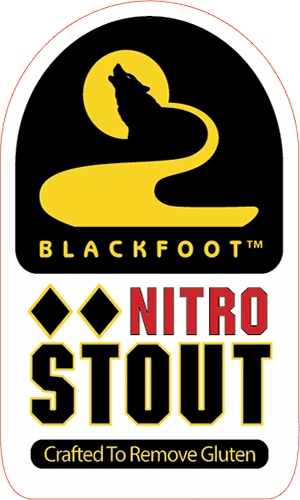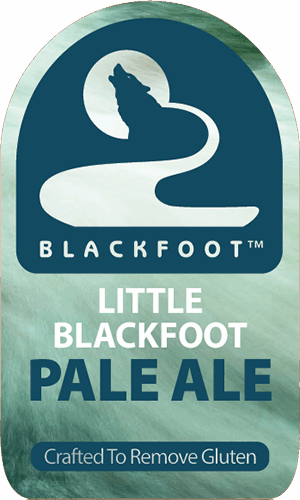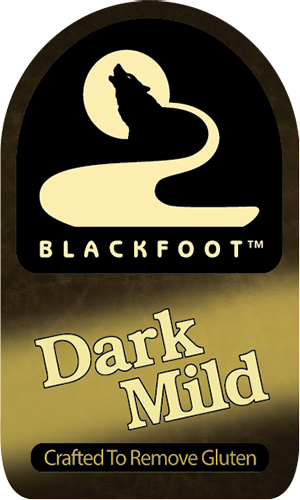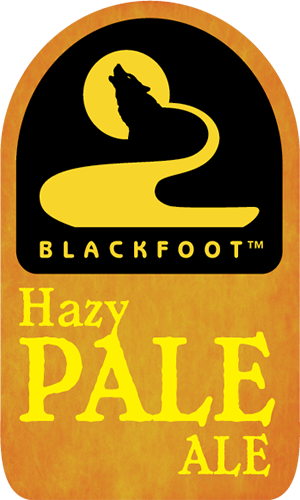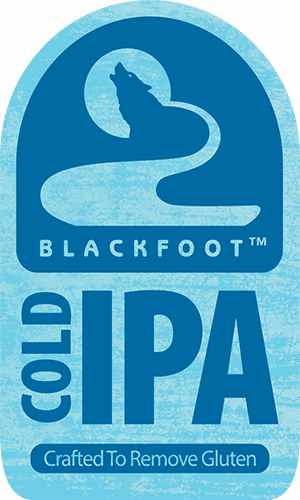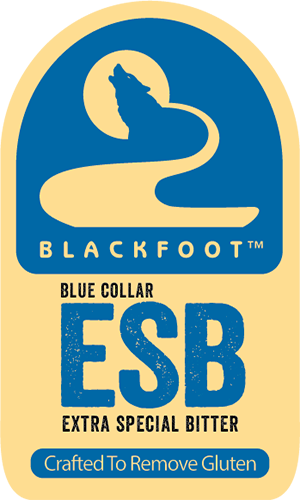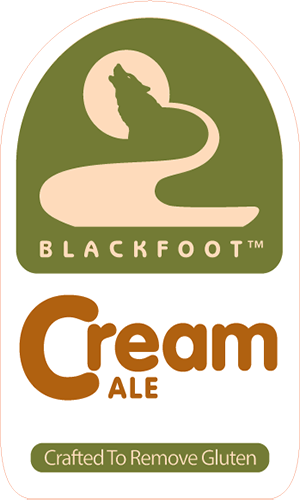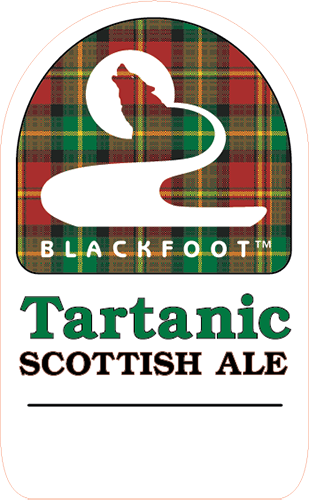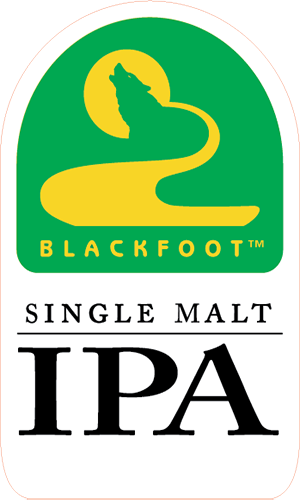About Us
Blackfoot River Brewing was founded in 1998 by three passionate homebrewers and beer aficionados: Brian Smith, Brad Simshaw and Greg Wermers.
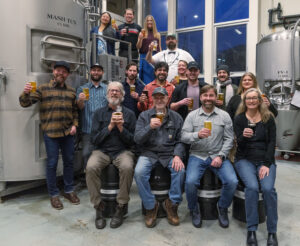
The History
1993 was an important year for Brian and Brad. That is the year they decided to give up drinking beer. Give up drinking bad beer that is. What followed was a couple of years of brewing like maniacs in Brad’s basement. Brian and Brad soon discovered that not only was it possible to make great tasting beer, but it was also great fun. And judging from the many friends who magically appeared on brew night it was easy to see that good beer and good friends were a good combination.
Now in a serious mode of homebrewing the pair opened Howling Wolf Homebrew Supply in Downtown Helena (over on Placer Street) in 1995. The biggest customers of the supply store were Brian and Brad, whose real motivation at the time was not to make money, but figured as a retailer they could buy malt & hops at wholesale! Soon Greg (another passionate homebrewer and all around fun guy) joined the business.
For a couple of years the three kicked around the idea of opening a brewery, envisioning a brewery that would produce the finest, handcrafted, traditional beers to be found in Montana carefully handcrafted 15 barrels at a time. Blackfoot River’s beers would be unfiltered, never pasteurized and available exclusively on draught. It was hoped that the brewery would be a community-oriented locale providing a comfortable alternative to the typical bar scene.
In May of 1998, the dreams of a brewery were coming to fruition in a recently vacated garage building located next door to Miller’s Crossing in Downtown Helena. With lots of creativity, loads of hard work, and tons of help and encouragement from many friends, Blackfoot River Brewing Company became a functional brewery. The first test batch of beer was brewed on December 1st, 1998. The brewery received its federal brewery license on December 31st and has been busy making great beer and great friends ever since.
In October of 2008, after eight years of thriving in the cozy environment of the original building, the brewery moved into a wonderful new facility built on what used to be a parking lot next to the old brewery. Many customers were at first wary of leaving the old brewery for the new one, but the friendships and community thrived in the new space.
In 2014, two new partners, Bethany Flint & Tim Chisman joined the ranks of Blackfoot owners and the wonderful Blackfoot staff to help continue the legacy of the Blackfoot and move the business into the future.
Thanks to all of the folks- staff, business partners, and customers, who have helped make the brewery such a great success!
Our Beer Making Philosophy
(It’s one of the many things that makes our beer different!)
At Blackfoot River Brewing, we believe in making our handcrafted beers the right way. We use only the finest traditional ingredients, specifically tailored to each style of beer. This means that we sacrifice costs and efficiency to give you the quality of beer that you deserve. Most importantly, at our brewery, the brewing of beer is much more important than the selling of beer. In this industry, many brewers come up with catchy names and marketing terms to sell beer, we just focus on making really good beer.
Quality ingredients
Malt
Malted barley is the soul of good beer. Malted means that the barley has been sprouted and then dried to create the enzymes necessary to convert starch to sugar during the mashing process. In order to keep our beers from tasting the same, we tailor our base malt to each particular beer style. Some of the base malts we use on a regular basis: Crispfloor-malted Gleneagles Maris Otter (England), Malteurop Montana-grown and malted two row Metcalfe (USA), Gambrinus Organic two row pale malt (British Columbia), Weyermann (Germany), Global (Germany), and Castle (Belgium) in our single-batch specialty beers. In addition to the base malts, we use roasted specialty malts from Crisp and Weyermann to create all of the unique malt flavors and colors in our beers.
Yeast
Many breweries use one single yeast strain to produce their entire beer line. This practice makes yeast management much easier and cheaper, but leaves their beers tasting remarkably similar. At Blackfoot, we strive to match the strain of yeast to the style of beer we are making.
Most of our British-Style Ales are all produced using a special strain of ale yeast. We chose one particular strain because it produces clean tasting ales (allows more of the malt & hops flavors to come through), is very stable, and flocculates (clears) well without being filtered or fined. This last characteristic is extremely important for us since we rely on natural maturation to clear and condition our beers.
We do use many other strains of yeast to produce our other specialty beers, including German lager and Weizenbier strains as well as Belgian yeasts for our Belgian series.
Hops
Similar to our malts and yeasts, we use many different varieties of hops in order to get diversity in our beer styles. We select each variety for its the flavors and aromas it will impart to the beer, and secondarily its bittering ability. Some of our favorites to use in our beers are: Simcoe (US), Cascade (US and organic from New Zealand), Saphir (Germany), East Kent Golding (U.K.), Magnum (Germany and organic from US), Northern Brewer (US and Germany), Centennial (US), Hallertauer Tradition (Germany), and Saaz (Czech Republic).
Instead of the traditional use of hops in the boil, and during/after fermentation (dry hopping), it is becoming common in the brewing industry to add iso-hop extracts and other manufactured hop products into the beer immediately prior to final packaging. Yes, there are “craft” breweries even in Montana that utilize engineered hop products in their beer, just not us. At Blackfoot, we believe brewing is an artisan process, not a manufacturing activity. We only add fresh, high quality hops directly to the beer, whether in the boil and/or post fermentation to maximize hop flavor and aroma.
Water
Being located in Downtown Helena, we rely on city water to make our beer. Helena has a variety of municipal water sources. Luckily, being located Downtown, we receive a lot of our water from the city well located at head of Last Chance Gulch, which shares the same aquifer as the artesian well that originally supplied the Helena Brewing Company at the turn of the century. We do further purify our water through a commercial 5 cubic foot sand and carbon filter to remove sediment, chlorine, fluoride and other impurities before it enters our brewing process.
Filtration, finings and other chemicals
Today, almost all breweries filter their beer. However, it was not until recently this was a “normal” part of the brewing process. Modern brewers filter their beer primarily for visual appearance and extended shelf-life. Filtration also allows a beer to be produced more quickly because it does not have to take the time to condition and naturally clear. One of the biggest negative side effects of filtration is the removal of complex sugars, which reduces the beer’s body, mouth-feel and malt characteristics. Also, a significant amount hop flavors & aroma are stripped out by filtration.
At Blackfoot, we believe in leaving what belongs in beer in the beer. We don’t filter, and we don’t even own a filter. Our beer making process includes a 2-4 week cold conditioning rest, which allows our beer to naturally clear and mature. Consequently, our beer is not as crystal clear as most on the market, but being unfiltered is one of the main reasons our beer has more character and is more flavorful than many others.
Finings are compounds that are commonly added to beer to improve the clarity. The only product we use in our beer to assist in clarity is Irish Moss. Irish Moss is wild-harvested seaweed (comprised almost entirely of carrageenan) that has been a traditional brewing ingredient for hundreds of years. Irish Moss, when boiled with wort causes protein molecules to coagulate and fall out of suspension. However, many brewers use other chemicals that are added directly to the beer after fermentation (late in the process), most commonly: Isinglass (collagen that is extracted from fish bladders), gelatin (derived from animal bones/hooves), PVPP (polyvinylpolypyrrolidone – hmm, wonder where that comes from), and Silicilic Acid. Rest assured, at Blackfoot we use none of these finings in our handcrafted, all natural products.
Packaging
You will also notice that you cannot find our beer in bottles. This is because we believe most beers are better on draft (with an exception for bottle conditioned). Most commercially bottled and canned beers are filled in open air/atmospheric conditions, which often lets oxygen into the package. Oxygen is bad for beer, it adversely affects the flavor as wells encourages beer spoiling bacteria to grow. Furthermore, bottles and cans often sit in non-temperature controlled warehouses and grocery store shelves for weeks at a time (or longer). Did you know that when you purchase a 6-pack of beer, you are most often paying more for the packaging than you are for the beer? Packaging that is expensive and is often just thrown away.
On the other hand, draft beer is counter-pressure filled in a sealed environment from the tank directly to the keg – almost zero exposure to oxygen. Kegs are stored in refrigerated environments and most importantly, way better than recycling, our stainless steel kegs are cleaned and re-used for many years to come.
